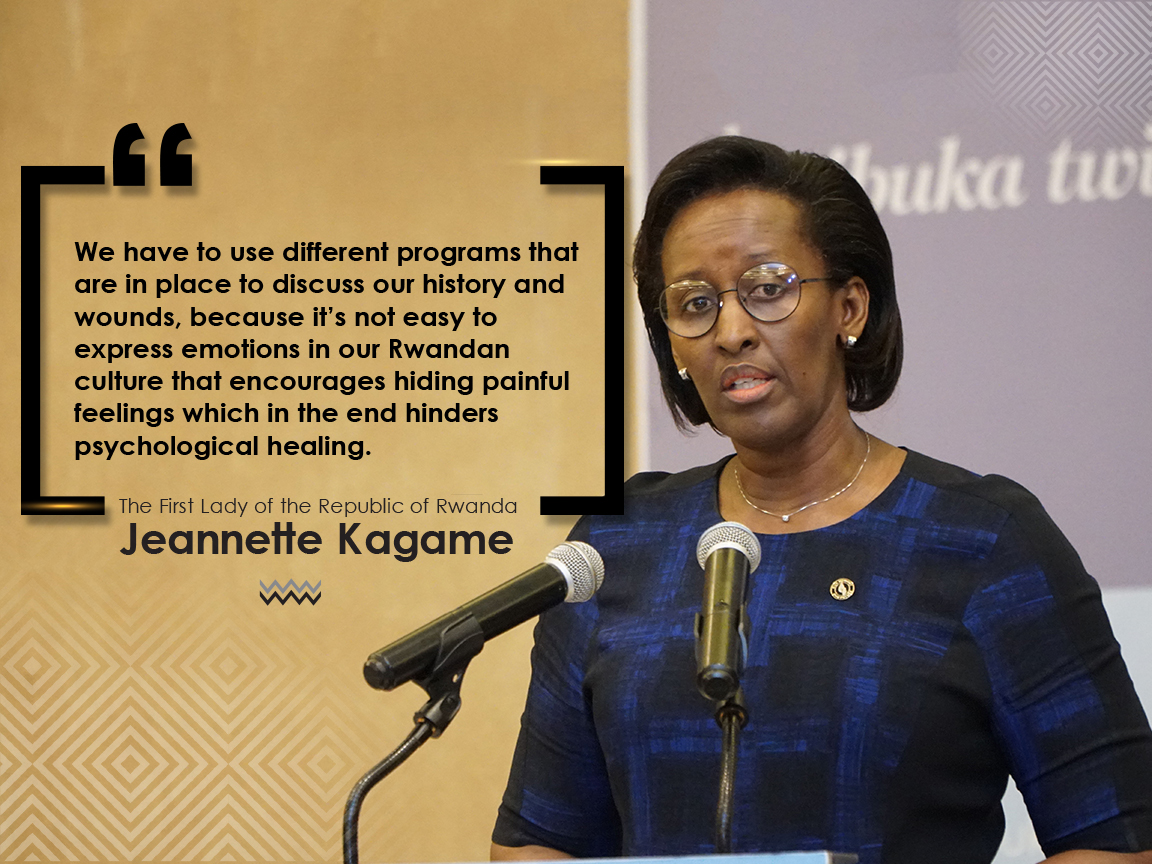The recent Rwanda Mental Health Survey (RMHS 2018) conducted by the Rwanda Biomedical Centre (RBC) revealed the increased prevalence of various mental disorders within the general Rwandan population and within genocide survivors. Results from this survey indicated that:
- Major depressive episodes (MDD) occurred in 12% of the general population and
- 35% of Genocide Survivors
- Post-Traumatic Stress Disorder (PTSD) occurred in 3.6% of the general population and
- 27% of Genocide survivors
It is on this note that on May 8th and 9th 2019, organizations working in the field of mental health and psychosocial support in Rwanda hosted a two-day National Trauma Symposium at Kigali Marriot Hotel under the theme “Embracing Trauma Management from Grassroots Initiatives to Institutional Interventions.”
The purpose of the symposium was to jointly discuss strategies to address the lingering psychological damage that was caused by the 1994 Genocide against the Tutsi. The event attracted stakeholders from various institutions such as Civil Society organizations in the sector of memory and healing, youth, mental health professionals and government officials.
Stigma and discrimination are the two biggest obstacles to a productive dialogue about mental health. A famous Rwandan proverb says: “The tears of a man flow inwardly” which in other words, implies that pain must not be shared and doing so portrays one as weak. The discussions during this symposium aimed to break the stigma around mental health deterring the psychological recovery process of many.
The Guest of Honor, the First Lady of the Republic of Rwanda Jeannette Kagame called on mental health professionals to be strategic as they seize opportunities available in raising awareness on mental health, through holding constructive public dialogue on the issue:
“We have to use different programs that are in place to discuss our history and wounds because it’s not easy to express emotions in our Rwandan culture that encourages hiding painful feelings which in the end hinders psychological healing.”
Though there exist psychosocial support services, this event called for joint efforts in dealing with trauma. In the words of the Executive Director of Never Again Rwanda and the Chairman of Rwanda Civil Society Platform (RCSP), Dr. Joseph Ryarasa Nkurunziza:
“The journey to reach strong mental health and psycho-social services is long. We need a national strategy on mental health care and healing. With the support of the ministry, we need to have a council for psychotherapists.”
Questions from participants were in the context of identity, memory, healing, genocide ideologies and the planned release of ex-perpetrators to be reintegrated back in the society that is yet to be prepared to receive them.
Hinged on the recommendations that suggested more research on the issue, more programs to help trauma victims and more collaboration between trauma practitioners, it was unanimously agreed that:
“Trauma healing isn’t an event, it is a journey” – Omar Ndizeye


